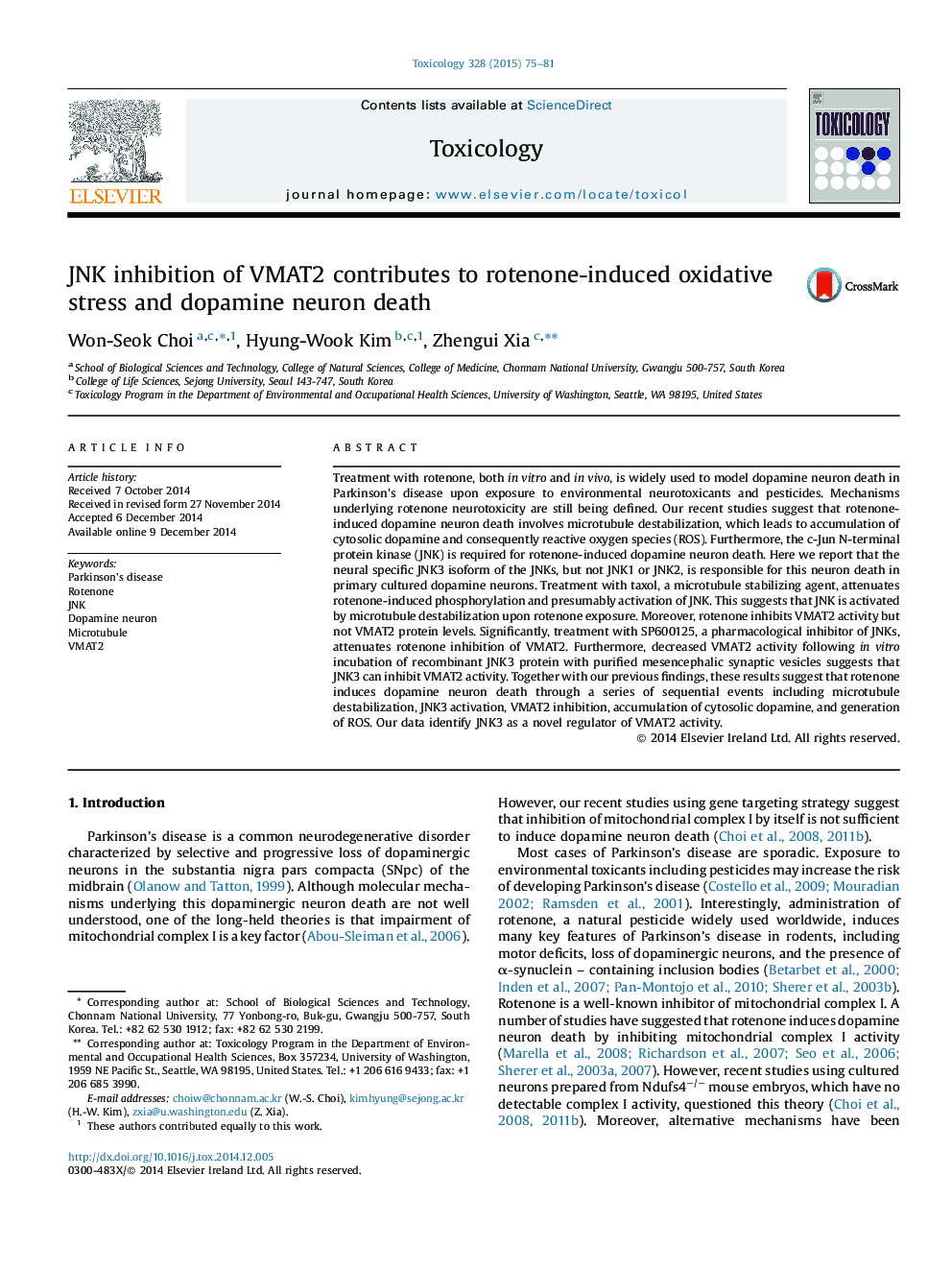| کد مقاله | کد نشریه | سال انتشار | مقاله انگلیسی | نسخه تمام متن |
|---|---|---|---|---|
| 5859116 | 1562328 | 2015 | 7 صفحه PDF | دانلود رایگان |

- JNK3 is responsible for rotenone-induced death of primary cultured dopamine neurons.
- JNK is activated by microtubule destabilization upon rotenone exposure.
- ROS and caspase activation is mediated by JNK3 in rotenone-induced dopaminergic neuron death.
- We identify JNK3 as a novel regulator of VMAT2 activity.
Treatment with rotenone, both in vitro and in vivo, is widely used to model dopamine neuron death in Parkinson's disease upon exposure to environmental neurotoxicants and pesticides. Mechanisms underlying rotenone neurotoxicity are still being defined. Our recent studies suggest that rotenone-induced dopamine neuron death involves microtubule destabilization, which leads to accumulation of cytosolic dopamine and consequently reactive oxygen species (ROS). Furthermore, the c-Jun N-terminal protein kinase (JNK) is required for rotenone-induced dopamine neuron death. Here we report that the neural specific JNK3 isoform of the JNKs, but not JNK1 or JNK2, is responsible for this neuron death in primary cultured dopamine neurons. Treatment with taxol, a microtubule stabilizing agent, attenuates rotenone-induced phosphorylation and presumably activation of JNK. This suggests that JNK is activated by microtubule destabilization upon rotenone exposure. Moreover, rotenone inhibits VMAT2 activity but not VMAT2 protein levels. Significantly, treatment with SP600125, a pharmacological inhibitor of JNKs, attenuates rotenone inhibition of VMAT2. Furthermore, decreased VMAT2 activity following in vitro incubation of recombinant JNK3 protein with purified mesencephalic synaptic vesicles suggests that JNK3 can inhibit VMAT2 activity. Together with our previous findings, these results suggest that rotenone induces dopamine neuron death through a series of sequential events including microtubule destabilization, JNK3 activation, VMAT2 inhibition, accumulation of cytosolic dopamine, and generation of ROS. Our data identify JNK3 as a novel regulator of VMAT2 activity.
51
Journal: Toxicology - Volume 328, 3 February 2015, Pages 75-81